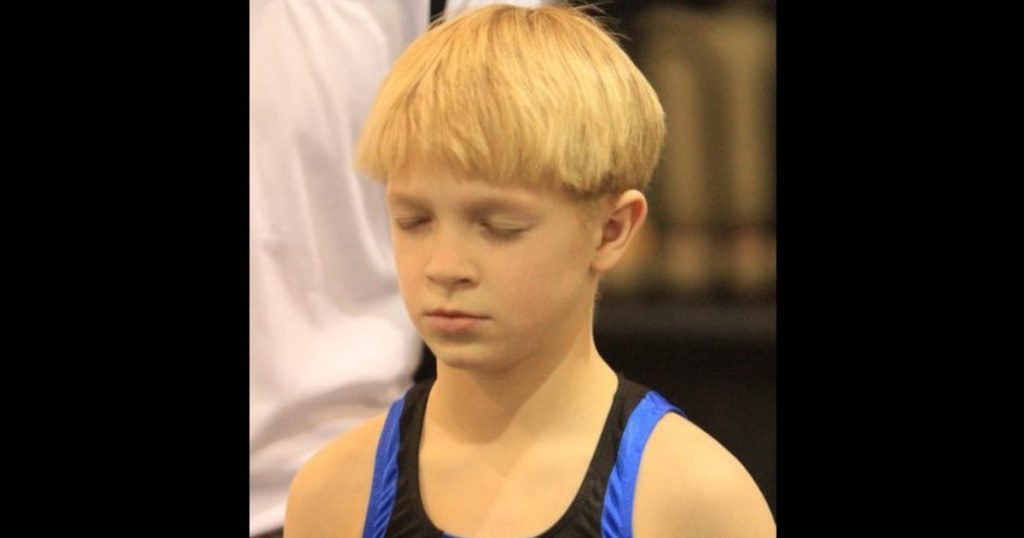
Part 5: DISCIPLINE
In our previous post, we learned that hard work pays off; and a child who learns this lesson will work hard in all that she does.
Today’s topic: Gymnastics Teaches Discipline.
Read other posts in this series:
- Part 1: PERSEVERANCE
- Part 2: ENDURING STRENGTH
- Part 3: HARD WORK IS ITS OWN REWARD
- Part 4: HARD WORK PAYS OFF
- Part 5: DISCIPLINE
Hard work and discipline go hand in hand. Without discipline, hard work is like a runner who zig-zags his way around a track. While other runners around him complete their laps much more efficiently by staying in their lanes, he must run a far greater distance just to reach the same finish line.
A gymnast learns to “stay in her lane” while in the process of her work. Whether executing a strength-building movement, perfecting a skill she’s developed for years, or drilling a new tumbling pass over and over, she understands the value of focusing intently on the task at hand and giving it maximal effort – not just once, but every single time.
So perhaps it shouldn’t be a surprise that gymnasts tend to outperform their peers when it comes to time management and academics.
A study by the National Collegiate Athletic Association revealed that, of all college-level gymnasts :
- 35% achieved a GPA of 3.5 or higher
- Over 90% graduated college
- More academic awards were given to gymnasts than athletes participating in any other sport, by as much as 2 or 3 times the amount
- More gymnasts received post-grad scholarships during the previous 5 years than athletes in any other female sport
But why?
How can it be that gymnasts – many who spend 20-25 hours practicing per week – academically outperform peers who often have far more discretionary time at their disposal?
Character Trumps Ability
Interestingly enough, the Harvard School of Education released a study in which they found that “the most effective predictor of a student’s future academic success” is a character trait that they called “GRIT.”
“Grit” is defined as “having determination, courage, persistence, a ‘growth mindset’ and the ability to maintain a balanced lifestyle.”
This trait – “grit” – was shown to be greater than intelligence at predicting academic success. Further, students characterized as having grit were “better at setting and working effectively towards goals and reflecting on their own learning.”
I might be biased, but it sounds like our friends at Harvard concluded that “being a gymnast” might just be the very best thing a child can do in order to become a successful student!
After all, doesn’t their definition of “grit” pretty much sum up everything we’ve shared in this entire series?
If you missed any of our previous posts in this series, be sure and check them out by clicking the links above!


